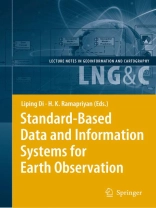CEOS was established under the auspices of the Economic Summit of Industrialized Nations in 1984 in response to a recommendation from a panel of experts in remote sensing within the Working Group on Growth, Technology and Employment (CEOS, 2009). The panel recognized the collective value of the world’s Earth remote sensing capabilities and the advantages that would be gained by the coordination of civil Earth observing satellite missions. By cooperating in mission planning and the development of compatible data products, applications, services and policies, the national space programs would maximize the bene?ts of their individual inve- ments and be able to better address the environmental challenges of the entire international community. CEOS was to serve as the focal point for this inter- tional coordination and to provide the forum for the change of policy and technical information. The members of CEOS are governmental organizations that are international or national in nature and are responsible for a civil space-borne Earth observation program that is currently in operation or in an advanced stage of system devel- ment. CEOS also has established Associate Members that are similar governmental organizations with a civil space-segment activity in an early stage of system dev- opment or those with a signi?cant ground-segment activity that supports CEOS objectives. Associate Members may also be existing satellite coordination group and scienti?c or governmental bodies that are international in nature and have a signi?cant programmatic activity that likewise is aligned with the goals of CEOS.
Inhaltsverzeichnis
Standards-Based Data and Information Systems for Earth Observations – An Introduction.- Use of NWGISS to Implement a Data Node in China’s Spatial Information Grid.- Data Integration Support to the Coordinated Enhanced Observing Period Project (CEOP).- Progress in OGC Web Services Interoperability Development.- Evolution of the Earth Observing System (EOS) Data and Information System (EOSDIS).- SCOOP Data Management: A Standards-Based Distributed Information System for Coastal Data Management.- A New Approach to Preservation Metadata for Scientific Data – A Real World Example.- Archive Standards: How Their Adoption Benefit Archive Systems.- An Association Rule Discovery System Applied to Geographic Data.- An Intelligent Archive Testbed Incorporating Data Mining.- Semantic Augmentations to an eb RIM Profile of Catalogue Service for the Web.- Geospatial Knowledge Discovery Using Semantic Web Services.- Accelerating Technology Adoption Through Community Endorsement.












